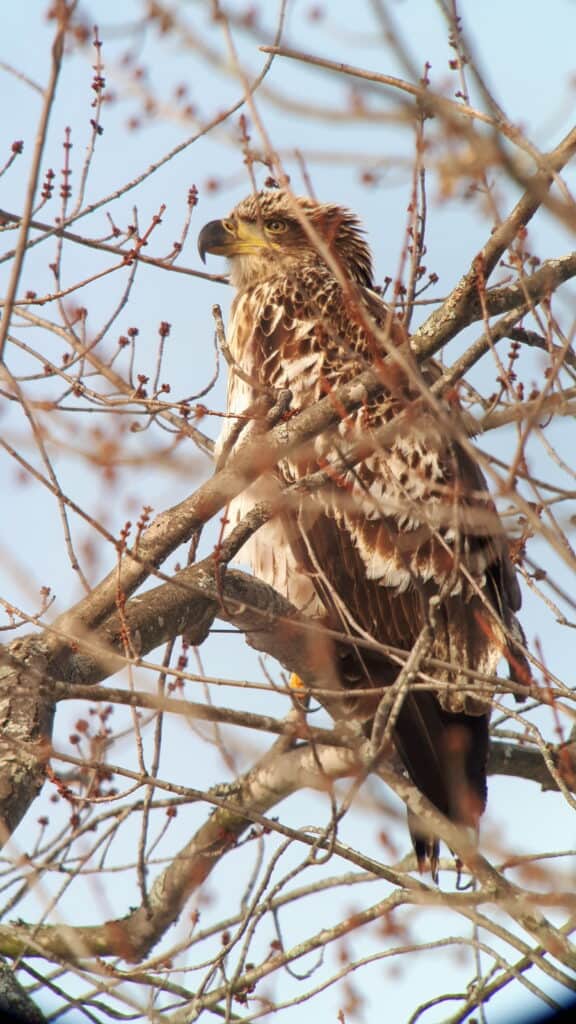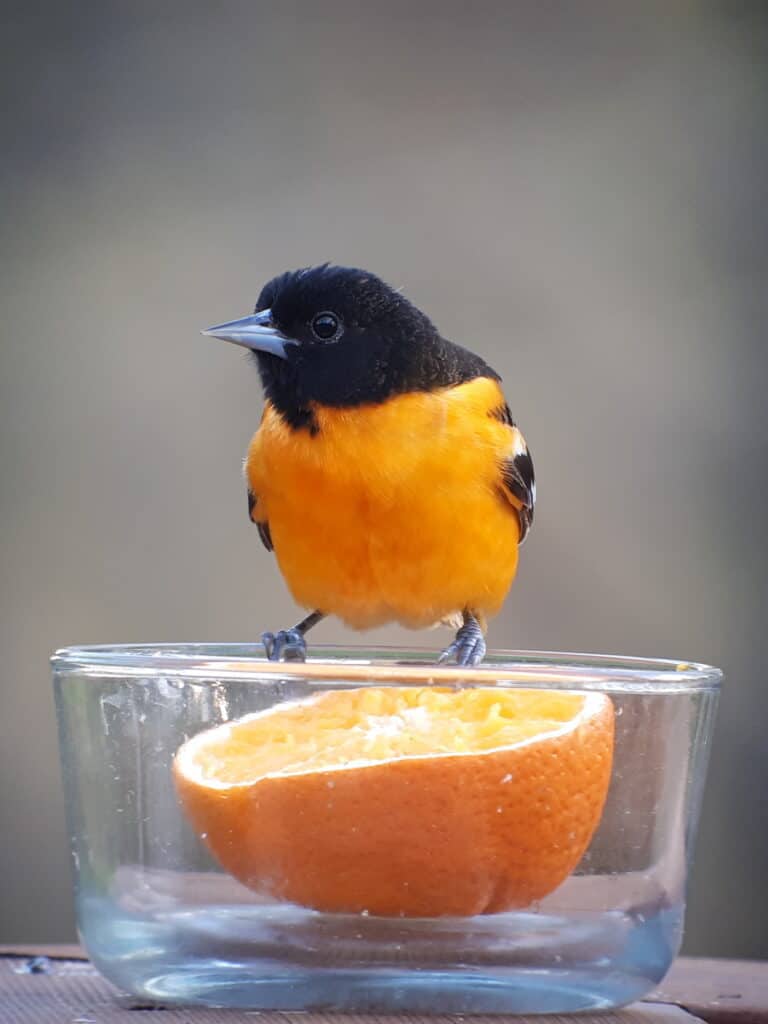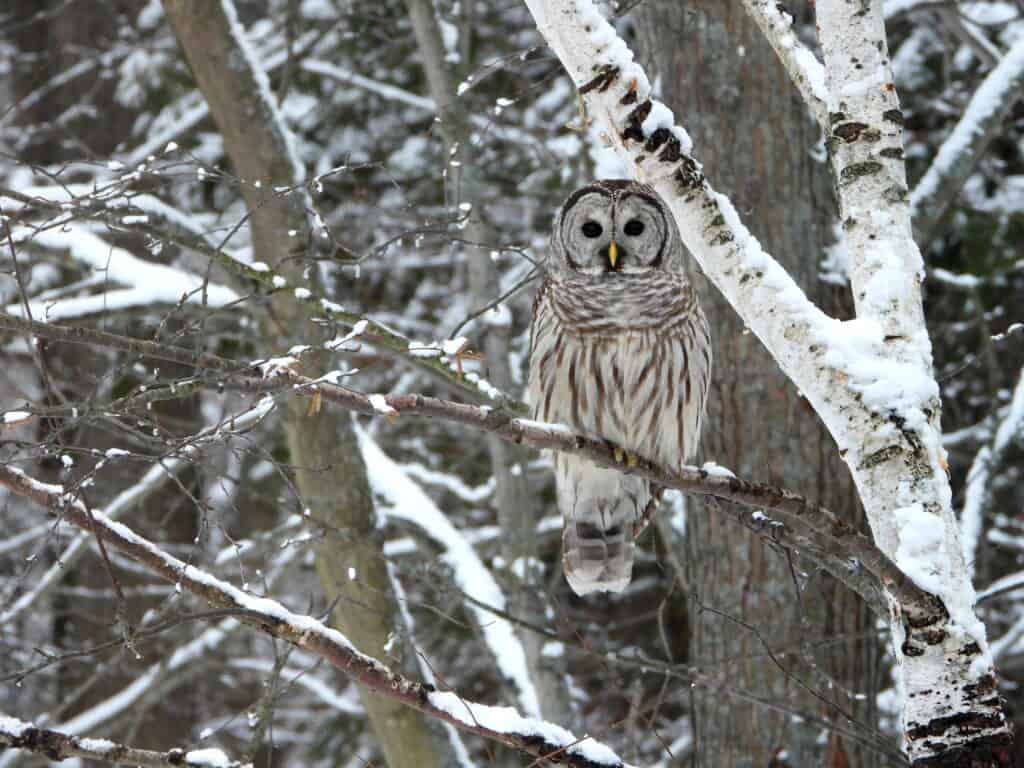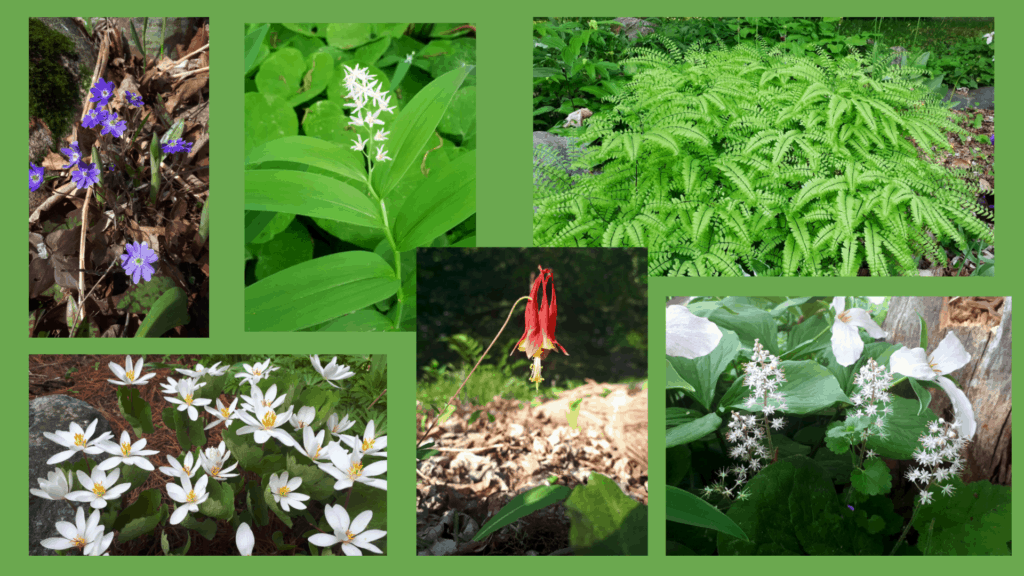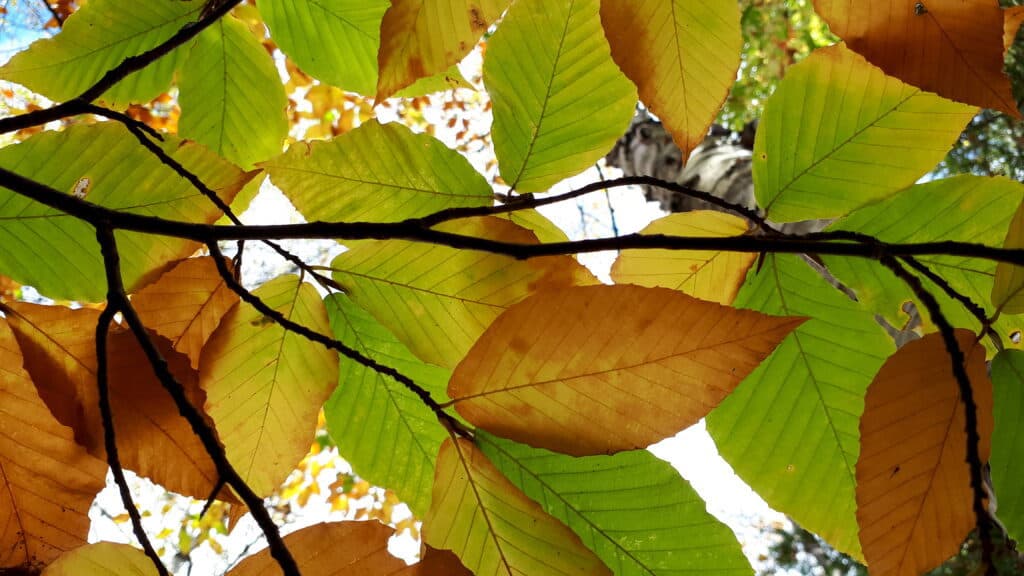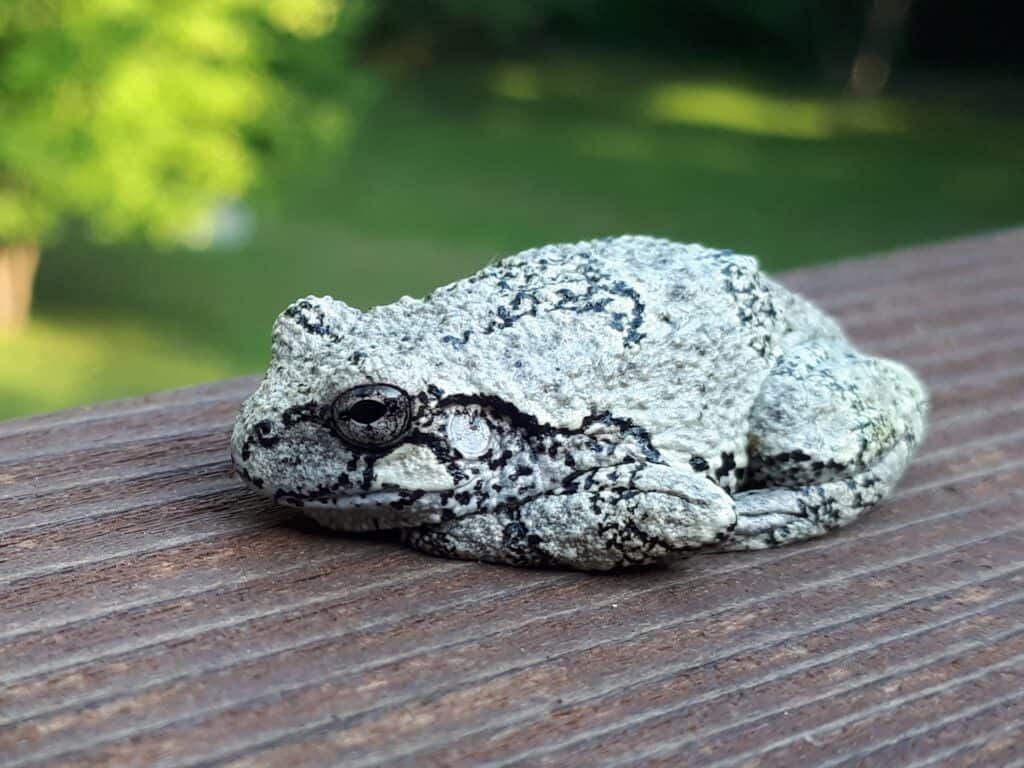Peterborough Examiner – July 16, 2021 – by SCOTT MCKINLAY
Nature isn’t just good for you; it nurtures climate action
The restrictions of the past 16 months have forced many of us to explore new frontiers of entertainment and self-fulfillment, and much of that entertainment has come in the form of spending more time outdoors. At the same time, we’ve been hearing more and more news and political debate about the climate crisis, its effects on extreme weather events, and the growing push for change. Are these trends simply coincidental, or are they somehow related? I suspect the latter.
As we turn to the outdoors for recreation, we begin to re-establish our inherent, but largely dormant, connection with nature. We are, after all, products of the natural world, just like any other life form on the planet. Despite malls, grocery stores, manufacturing, the internet, and everything else that now separates us from nature, we are still 100% reliant on Earth’s resources for our shelter, for our nourishment, and for our very existence.
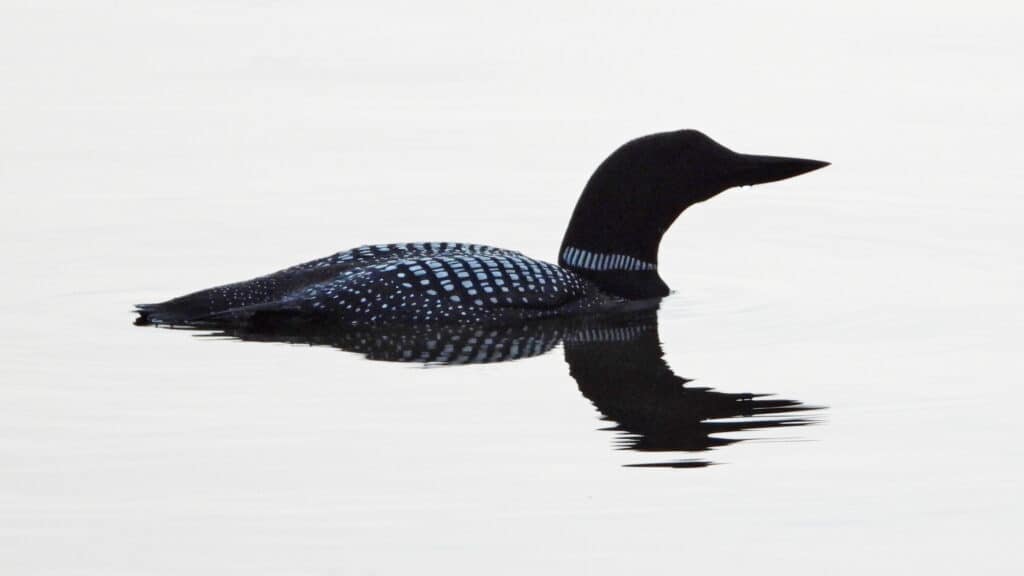
When we step into nature, even if it’s just for a bicycle ride or a power walk, we make a connection. We hear birds, smell trees, see the seasons change, feel the wind, and taste freedom. The more we connect, the more we care. As Aldo Leopold once said, “naturalists live in a world of wounds that only they can see.” The better we get to know our ‘Earthmates’, the more likely we are to stand up for them.
There was an excellent example of this recently, at Duffin’s Creek in Pickering, where a warehouse development was approved on a provincially significant wetland. Too many people had a connection with that wetland to just stand by and see it destroyed. Protests, letters to editors, letters to politicians, the young and the old, all came together to make it known that any government or corporation that destroyed this wetland would itself be destroyed, and so the wetland was saved…. for now.
Huge benefits
Protecting wild spaces isn’t just about saving a few frogs or having a pretty place to exercise. ‘Nature Deficit Disorder’ is the topic of many books. People seeking relief from anxiety are hiring practitioners of ‘Forest Therapy’, and some doctors now prescribe daily walks in nature in lieu of medication.
From the planet’s perspective, healthy wetlands, forests, and other ecosystems not only give life to the wildlife species that we love to encounter on our outings, but they provide critical buffers against the causes and consequences of the current climate crisis. Healthy ecosystems absorb carbon dioxide from the atmosphere, thus slowing climate change. They store water, thereby reducing the severity of floods and droughts, and they provide a local cooling effect as the stored water evaporates from the vegetation.
Healthy ecosystems provide greater biodiversity which ensures a greater variety of pollinators for our crops, more wildlife for ecotourism, healthier forests for paper products and building materials, greater potential for medicines, and healthier soils for sustainable food production. In short, healthy ecosystems make the planet more resilient to the assaults of human activity. Fragmenting nature into smaller and smaller parcels is to deny all of Earth’s inhabitants a healthy future. Connecting to nature ensures that we will want to protect what’s left, and hopefully to restore it.
Where can we find nature?
Canada is blessed with more wilderness than almost any other country in the world, but we don’t have to travel to pristine wilderness to find our connections with nature. In particular, the Kawarthas have an abundance of lakes, trails, and nature areas. For Drew Monkman’s three-part series on local nature-viewing locations, go to https://tinyurl.com/hvdh3b5j and scroll down.
You may also wish to download the ‘AllTrails’ app to locate trails all over Ontario and beyond or pull up a satellite view of your neighborhood to find greenspaces and parks right next door. Even these tiny oases of life have a surprising diversity of plants and animals to see, smell, hear, touch, identify, catalogue, photograph, draw, or simply contemplate. But you have to stop, look closely, and listen.
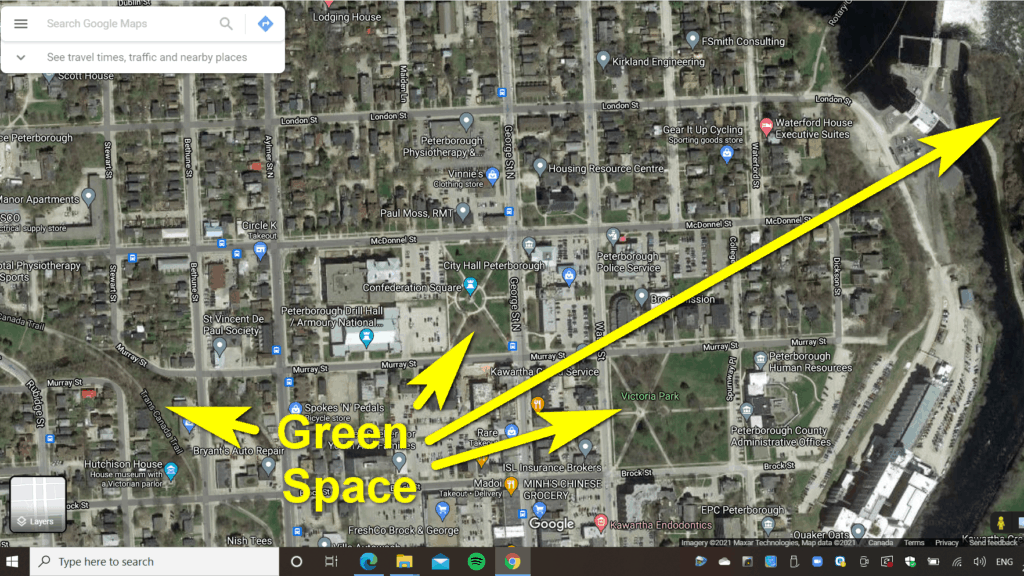
Re-wild your backyard
People that feel a connection to nature shudder with every tree that is felled and every pond that is drained as we make room for an ever growing human population. Yet, each of us resides on what was once habitat for countless species of plants, animals, fungi, and micro-organisms. If you own your own home you can return some of that property to nature. You don’t need to relinquish every blade of grass, but a vast monoculture of manicured lawn is about as appealing to native life as a parking lot. Plus, it is more toxic, and requires more resources for its maintenance.
Why not start with a seldom used patch of your yard and convert it into a meadow, a forest understory, or even a pond? Populate it with native plants of Ontario (or whichever province you live in). You will be rewarded with beautiful flowers, butterflies, pollinators, birds, and other wildlife, but more importantly, for the reasons described above, you will be improving the planet’s resilience against the climate crisis. You will connect with your cohabitants in ways that will transform you into an ecowarrior, capable of bending politicians to your will, able to see solutions where others see only problems, and eager to lead your friends and neighbors in a quest for a better future. Yes, you.
Want to know more?
If you are the type that likes to identify everything you see, there are countless field guides, both printed and in app form, to help identify insects, birds, herptiles, trees, plants, and much more. Join the local field naturalists, invite your nature nerd friend on your outings, join a birding or native plant gardening group on Facebook, and continue to read Drew’s columns. For Our Grandchildren (4RG) is currently featuring ‘Nature Nurtures Climate Action’ posts on its Facebook page and Facebook group. To hear Sophie Monkman discuss forest therapy on September 13, email 4RGmeets@gmail.com for the Zoom link. 4RG also has a webpage providing news and actions related to climate change.
So, get out there, get to know your Earthmates, learn how to protect them, and remember, you ARE nature.
Right: An Eastern Gray Treefrog attempts to blend into my deck railing.
Scott McKinlay is a naturalist, biologist, and retired science teacher. He contributes to several citizen scientist programs, is an executive member of For Our Grandchildren, and occasionally leads outings with the Peterborough Field Naturalists.
CLIMATE CRISIS UPDATE
ALARM: The devasting heat wave in the Pacific Northwest, which overwhelmed communities in both Canada and the U.S., would have been ‘virtually impossible’ in the absence of climate change, a recent report suggests. The impact of global heating made it at least 150 times more likely to happen. The authors’ estimate that such events in today’s climate, which is about 1.2 C warmer than before the industrial revolution, should only occur once every 1,000 years. However, if the planet becomes 2 C warmer, which could happen by 2050, the researchers say heat waves like this could happen at least once or twice a decade. See https://tinyurl.com/28z2bje2
HOPE: In two good news stories, the federal government has announced plans for new ‘high frequency’ rail lines connecting Toronto, Ottawa, Montreal and Quebec City, and passing through Peterborough. Up to 90 percent of the new service would run on electricity, contributing to a green economy and creating good jobs. See https://tinyurl.com/fw5epd8w The Senate has now passed bill C-12. Canada actually has a climate plan with some teeth, even if weaker teeth than many wanted. According to an article in iPolitics, “Bill C-12 would legislate targets for reducing greenhouse-gas emissions, require regular reporting on Canada’s progress, and create an advisory panel to oversee the process. It’s modeled on similar legislation in countries like the U.K. and New Zealand.” See https://tinyurl.com/66ermsdx
TAKE ACTION: To see a list of ways YOU can take climate action, go to https://forourgrandchildren.ca/. Scroll down and click on “This Month’s Action” or “Find Another Action You Can Take Today”.
